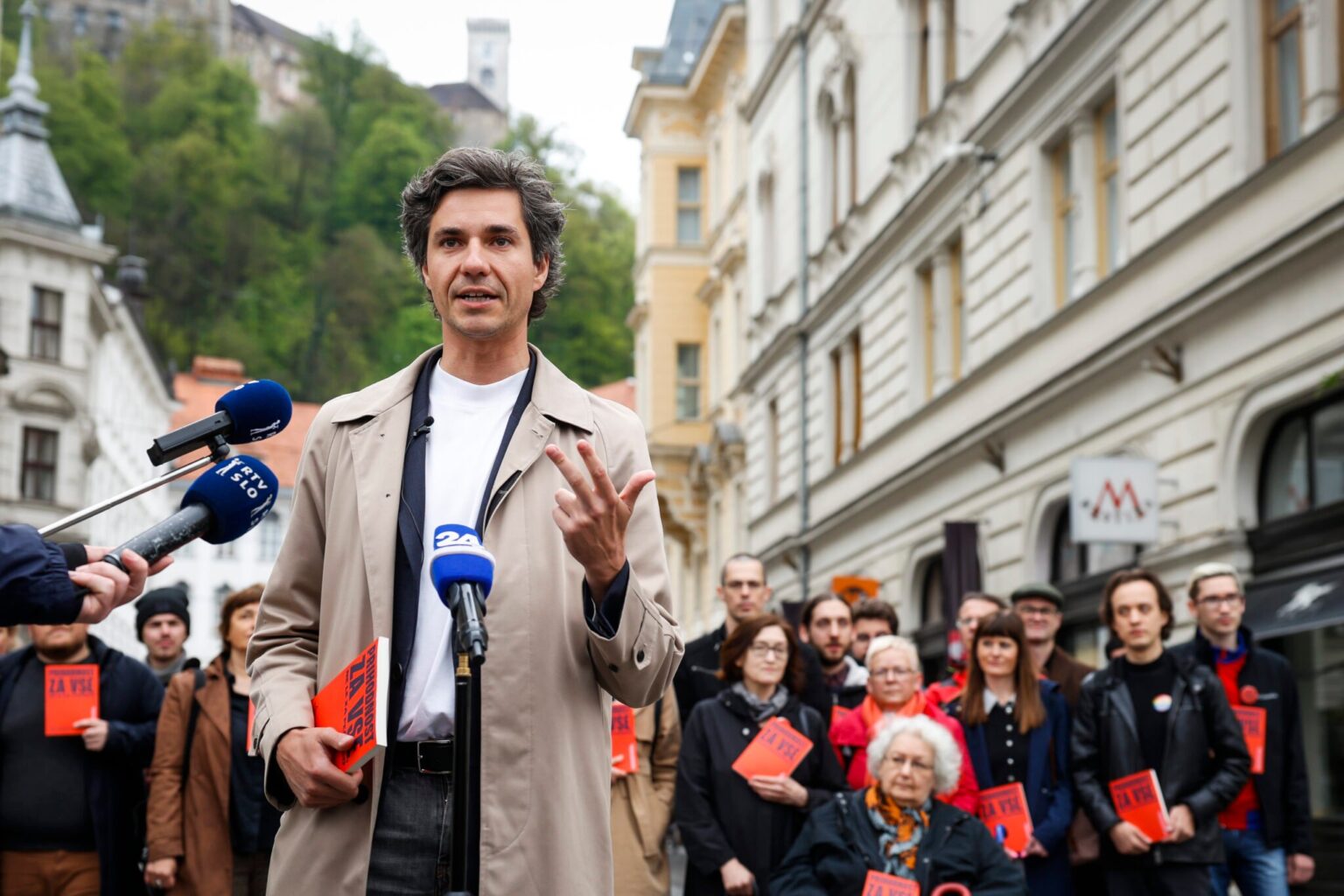By: Gal Kovač / Nova24tv
Before the holidays, the government of Robert Golob surprised the wider Slovenian public by announcing an amendment to the Financial Administration Act, which contains a highly controversial provision that allows the Financial Administration of the Republic of Slovenia to secretly track cargo (and, therefore, citizens, too) without a judge’s order. The law was initially opposed by both the Social Democrats party (Socialni demokrati – SD) and the Left party (Levica) for this reason. However, this recently changed. The Social Democrats are standing their ground, while the Left party has changed its mind and offered its votes in favour of the controversial amendments to the law. They have done so, even though they are not even completely sure whether the law is compatible with the Constitution or not.
The law initially passed the vote in the National Assembly, although only the MPS from the Freedom Movement party (Gibanje Svoboda) voted in favour. It was stopped by the National Council, where the amendment was almost unanimously vetoed (28 votes in favour of the veto, 2 against). As a rule, the amendment was returned to the National Assembly for a second vote, but today it received broader support. The law itself has not undergone any substantive changes. The Left Party is now publicly claiming that it did not engage in parliamentary bargaining, and that it still doubts whether the law is even compatible with the Constitution.
That is why they have decided to support the law, but they have also announced that they will send it to the Constitutional Court for a constitutional review with a proposal to temporarily halt its implementation. According to the N1 media outlet, they deny that they are using the law to get something they want. They also claim that the change in their position is in no way linked to the coalition’s agreement on the healthcare reform. Namely, the Left party has been campaigning for the abolition of supplementary healthcare insurance since its entry into the National Assembly, but this measure has been put on the “back burner” for the time being. In fact, the Prime Minister said at a recent press conference that there are much bigger problems we have to face before tackling this, or at least that is what could be understood between the lines.
The Social Democrats, the other coalition partner, stood by their original position at the recent vote. They had opposed the law in previous debates on the grounds that secret surveillance should be ordered by a judge and not by the Financial Administration of the Republic of Slovenia, which, on top of everything else, has no supervisory authority above it that could check the correctness of the procedures and the justification for the surveillance. This line of debate was also followed at the recent session when, speaking on the SD party’s behalf, MP Predrag Baković said: “If the condition for secret tracking to be imposed under the new amendment to the law is only met when a financial investigation is initiated, I ask you, how is a financial investigation initiated? Against whom? Always against a person,” the MP said in the debate, adding that there was nothing wrong if there were disagreements even within the coalition. And we would like to add that the Social Democrats and their President, Tanja Fajon, are certainly not willing to risk the abundance of perks that being part of the coalition brings, in exchange for defending citizens’ freedoms.
Well, before the holidays, their former MP Jan Škobrne presented a completely different opinion, and he was extremely critical of the government’s performance. He went as far as to say that if the same thing had happened during the Janez Janša government, the country would probably have run out of bicycles (which was a reference to the opposition’s Friday bicycling protests during the previous government’s term).
The opposition objected the adoption of the amendment
The opposition parties opposed the adoption of the law this time, too, just like they did in the first vote. Former Minister Jernej Vrtovec spoke on behalf of the New Slovenia party (Nova Slovenija – NSi), who believes that this is too much of an interference in human rights, while the Slovenian Democratic Party (Slovenska demokratska stranka – SDS) MP Jožef Lenart concluded that the SDS party would in no way help a public institution such as the Financial Administration of the Republic of Slovenia to acquire illegal powers. Andrej Hoivik, an SDS MP, made a similar observation in his semi-ironic note, noting that the ruling parties are not, after all, such big defenders of human rights as they claim to be in public.
